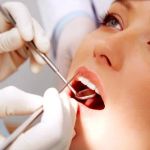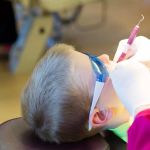Can Tooth Infections Lead to Sinus Issues? Understanding the Link Between Oral and Sinus Health
- 1. How Tooth Infections Affect Your Sinuses
- 2. The Connection Between Dental and Sinus Health
- 3. Symptoms of a Tooth Infection Leading to Sinus Problems
- 4. Preventing Sinus Issues from Tooth Infections
1. How Tooth Infections Affect Your Sinuses
Tooth infections can lead to sinus problems, particularly when the infection involves the upper teeth. The roots of these teeth are located near the maxillary sinuses, making it possible for the bacteria from an infected tooth to spread to the sinus cavities. This can lead to sinusitis, which is an inflammation of the sinus lining. When a tooth infection spreads to the sinuses, it can cause symptoms like facial pain, nasal congestion, and pressure in the head, mimicking typical sinus issues.
2. The Connection Between Dental and Sinus Health
Our dental health and sinus health are more closely linked than most people realize. The sinuses, especially the maxillary sinuses, are located just above the upper teeth, which makes them vulnerable to infections that originate in the mouth. When a tooth infection occurs in one of the upper molars, the bacteria can easily spread to the sinuses, leading to sinus infections. This is particularly true if the tooth infection is left untreated, as it allows the bacteria to multiply and spread through the bone and tissue.
2.1. How Bacteria Travel to the Sinuses
The process begins when bacteria from an infected tooth or gum enter the bloodstream and travel to nearby areas, including the sinuses. The close proximity between the roots of the upper teeth and the sinus cavities facilitates this spread. If the infection reaches the sinus cavity, it can result in a painful sinus infection, also known as sinusitis.
3. Symptoms of a Tooth Infection Leading to Sinus Problems
If you have a tooth infection that is affecting your sinuses, you may experience a combination of dental and sinus symptoms. Some common signs include:
3.1. Facial Pain and Pressure
One of the most common symptoms is a feeling of pressure or pain around your face, particularly around the eyes, cheeks, and upper jaw. This pain may be constant or intensify when you move your head, and it can feel very similar to a typical sinus headache.
3.2. Nasal Congestion
If the infection has spread to your sinuses, you may experience nasal congestion or a blocked nose. This occurs because the sinus cavities become inflamed due to the bacterial infection, reducing airflow and causing difficulty breathing through the nose.
3.3. Bad Breath and Foul Taste
A tooth infection can also lead to bad breath (halitosis) and a foul taste in your mouth, which may worsen as the infection spreads to the sinuses. This happens as the bacteria continue to multiply, creating an unpleasant odor that can affect your overall oral hygiene.
3.4. Fever
In some cases, a tooth infection that spreads to the sinuses can cause a mild fever. This is your body’s way of fighting off the infection and is a clear indication that medical attention is needed to prevent further complications.
4. Preventing Sinus Issues from Tooth Infections
The best way to prevent sinus problems stemming from tooth infections is to take good care of your oral health. This includes:
4.1. Regular Dental Check-ups
Routine dental exams can help identify potential problems before they escalate into serious infections. By visiting your dentist regularly, you can catch tooth infections early, preventing them from spreading to your sinuses or other parts of your body.
4.2. Prompt Treatment of Tooth Infections
If you suspect you have a tooth infection, it’s important to seek dental treatment right away. The sooner an infection is treated, the less likely it is to spread to the sinuses or cause other complications.
4.3. Good Oral Hygiene
Maintaining good oral hygiene through regular brushing, flossing, and using mouthwash can significantly reduce the risk of developing tooth infections. Keeping your mouth clean helps prevent bacteria from accumulating in the first place, reducing the chances of developing dental and sinus problems.
If you're experiencing symptoms of a tooth infection or suspect that your sinus issues may be related to a dental problem, don’t wait to get help. Visit Dentistry Toothtruth to find out more about how we can help you address both dental and sinus concerns effectively.







 Loma Linda University Center for Dentistry and Orthodontics4.0 (24 review)
Loma Linda University Center for Dentistry and Orthodontics4.0 (24 review) Dover Dental Center4.0 (44 review)
Dover Dental Center4.0 (44 review) Smile Fixer RVA: Stacy Lukanuski DDS, D.B.A4.0 (249 review)
Smile Fixer RVA: Stacy Lukanuski DDS, D.B.A4.0 (249 review) Handpiece Solutions, Inc.3.0 (7 review)
Handpiece Solutions, Inc.3.0 (7 review) McDonough Endodontic Center4.0 (333 review)
McDonough Endodontic Center4.0 (333 review) Smile Academy Pediatric Dentistry4.0 (48 review)
Smile Academy Pediatric Dentistry4.0 (48 review) The Importance of Oral Health Education During Pregnancy for a Healthy Pregnancy
The Importance of Oral Health Education During Pregnancy for a Healthy Pregnancy Best Tips for Brushing Your Teeth Properly for Healthy Gums: Essential Techniques for Oral Health
Best Tips for Brushing Your Teeth Properly for Healthy Gums: Essential Techniques for Oral Health Why Skipping Dental Checkups Can Lead to Bigger Oral Health Problems
Why Skipping Dental Checkups Can Lead to Bigger Oral Health Problems Advantages of Porcelain Dental Restorations
Advantages of Porcelain Dental Restorations How Can Diabetes Cause Tooth and Gum Problems? Preventing and Managing Oral Health Issues
How Can Diabetes Cause Tooth and Gum Problems? Preventing and Managing Oral Health Issues Healthy Habits for Promoting Good Oral Health and Hygiene: Tips for a Healthy Smile
Healthy Habits for Promoting Good Oral Health and Hygiene: Tips for a Healthy Smile